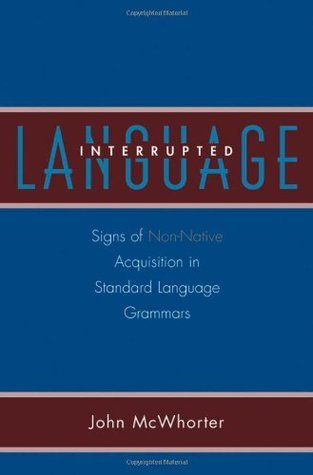What do you think?
Rate this book


304 pages, Hardcover
First published January 1, 2007
... some of the available literature is only available in Chinese, which I do not read. Engaging in comparative Chinese language research from outside the subfield is like finding that there are full grammars of only French and Spanish, briefer ones of Italian and Portugese, and only scattered articles on Romanian, Occitan, Catalan and Rhaeto-Romance mostly analyzing inflectional paradigms, with the further obstacle that most of the languages' dialects are as divergent as Italian's and a goodly part of the literature is written in Arabic.Note by the way that, as is usual in this book, he takes it for granted that you have at least a surface familiarity with all the European languages and the relationships between them.